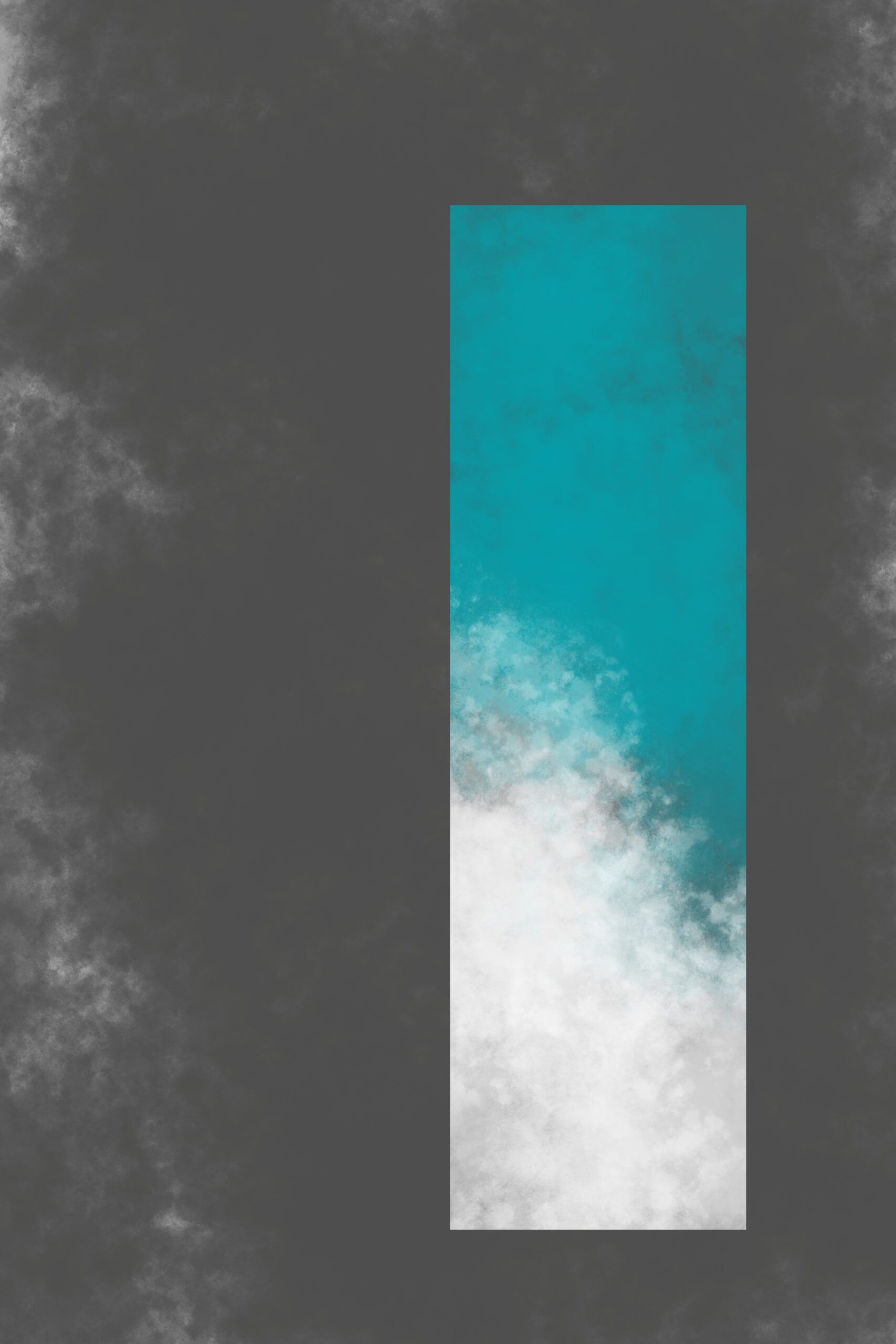Nonfiction

The Index of Secrets
The earth is a volatile, shifting being, its wonders both hidden and revealed. Magma bubbles and flows thirty kilometers below its surface, a place where time doesn’t exist, forever searching for cracks and weaknesses to squeeze through to exposure and make itself known. To be seen.
•
You’ve held secrets that have behaved in much the same way, squirming in their tightly locked chambers, seeking release, wanting to feel light on the curve of their shame. Some secrets you’ve kept well but for some you make a crack, lever it wide enough to glimpse the heat of compression.
•
When you were a child and through your teenage years you kept the secret of your father’s volatility. You hid the flux of his erratic behaviour, his bullying and occasional violence. The walls of your house made a broiling chamber, cracks emerging and resealing, and you learned to keep your emotions hidden, your true self buried deep inside the solidity of your shell.
•
The lava of a shield volcano has low viscosity, inching forward over a long period of time. One year was the time it took for your sister to tell you she was married. She gathered your family in a restaurant and announced you were there to celebrate her first wedding anniversary. You remember a moment of shocked silence before your family made the accepted celebratory noises. This was many years ago but you still feel the hurt of this deceit, spread low across the ground of your life, and your father raises it when he’s angry, when he feels someone needs to account for their bad behaviour.
•
Stratovolcanoes are tall, with rocks and ash and multiple kinds of lava exploding from their mouths. This is how you thought of your father as you grew up. A looming, unpredictable presence. Your own character by contrast became ever more contained, emotions of any kind wrestled into the confines of your implacable exterior. Even now, years after understanding why this is so, you find it difficult to express spontaneous emotions, particularly anger or fear.
•
You once had a relationship with a man much younger than yourself. When you met him you didn’t know how much anxiety he held inside himself, how sometimes it stopped him from leaving the house. In the few months you spent together you only went out in public together once. You both knew this affair was a transient thing and eventually you ended it gently, but still his fears erupted into rage after he returned to his home, destroying a door and throwing a room into disarray. The more secrets he held onto, the more his surfaces cracked.
•
The Volcano Explosivity Index is the scale used to measure the amount a volcano releases during eruption. You would like a way to measure the destructive power of a secret, to evaluate the potential pain of exposure for yourself and for others, compared to the damage to your mind and spirit by keeping it safely hidden. You would like this to be a colourful chart, or some kind of mechanism with a golden arrow to indicate a sliding scale from gentle discomfort to eruptive destruction (whose level might be called explosure).
•
You are currently holding a secret in plain sight. Your lover’s ex-wife is someone you know, but she does not know about your love. You and your lover go out together where she may see you, so you feel the secret is not a secret at all, at best a shield volcano of openness. You feel that this secret is not yours to tell, but when she does discover the truth you anticipate an eruption, ash and cinders and lava thrown high into the sky to burn the air and everything it touches, the golden arrow springing violently to level red.
•
Volcanoes are classified as active, dormant, or extinct. Your father is now an old man, and while you know he still has the same broiling deep beneath his surface you consider him to be dormant, no longer a threat. You wonder if a secret can ever be extinct. The truth of it surely lives on even after death.
•
Cinder cone volcanoes erupt briefly and then settle, as though misunderstanding the intensity of their turmoil. Perhaps when the truth is revealed to your lover’s ex-wife, you’ll find the eruption of your imagination is a phantom, merely a fire born of fear. You hope you’ll be relieved by this move towards growth, but you suspect you’ll be disappointed by any casualness or easy acceptance. You are not proud of this.
•
When secrets burn too deeply in their subterranean chambers, doors are destroyed, family are estranged, ex-wives become singed. So you try to reveal the compressed heat of your own shame with your voice or your pen, and sometimes this levers a skylight in others, a crack that releases the slow lava of their thought and soul, a glowing magma that wants to make itself known, wants to be seen. The resulting shield volcano has a surface rippled with trust, a testament to the earth’s truth, in a place where time doesn’t exist.
Note: This lyric essay/prose poem is a hybrid work and can be categorized as both creative nonfiction and poetry by the author.
Waking at Camp
The sun drills through the orange shell of my sleeping-bag, illuminating the camp scenes on its worn flannel lining. Despite a sharp rock in my back, I think, for a flash, that I am at home where my unzipped bag is my quilt. I hang on to that moment because I know, once I emerge from my cocoon, I will have to shoulder that heavy pack. But, cold as the night was, my bag’s now stuffy, so I stick my head out and catch my breath. I am ten years old and waking twenty feet from the edge of a rocky outcrop overlooking …
Nothingness. Vast, then dropping, like a lost bowl, to tiny trees that slope to the edge of the newly distant lake. Another mountain rises behind, backed by thin clouds grazing a pale blue sky. I drink this moment as if I will never drink again.
They wake. My top-heavy pack looms over my head. The same leaders who volunteer to remove things from the fairylike girl with the blond braids and weak smile’s pack, who unbidden lighten her load every half mile, refuse to even check mine. It doesn’t matter. O.K., it does, but it doesn’t more because I can’t do anything about it; I signed up for this and I don’t know how lucky I am.
I don’t know that such a thing would be impossible, illegal today – sending a group of girls, strangers, all hovering around age ten, up a mountain, for four days, with two guides who couldn’t have been more than seventeen, if that. We see no other hikers, and (in 1976) there is no way to contact anyone should something go wrong. On the other hand, nothing does. Do we sleep in tents? No! We are exposed. But do Grizzlies raid our supplies, cougars attack us? Also no. Besides, the camp itself does not have tents.
The week before, when (after a welcome speech featuring a group vow to always accompany your campmate to the toilet in the dark) Julie and I set up our campsite, it was tarps on the ground, duffels against a tree. Julie squared our tarps to right angles and—despite my very scientific protestations—aerosoled a perimeter of Raid around them. I slept with my arms overhead and—despite Julie’s Raid—woke to mosquito bites on bites, my arms swollen in a landscape of red rubbery bumps, no spot untouched (so grotesque that bragging rights outweighed the itch). My tarp was an old blue shower curtain, Julie’s a proper green drop cloth. The idea was, if it rained you’d tie a rope between two trees, then use one camper’s tarp as a tent and the other for ground cover. We agreed that Julie’s tarp—being larger and bendier, (and, I realize now, more fashionable)—would be the tent, but it never rained which was good, because I took my shower curtain with me, up the mountain.
Our leaders provided backpacks and, after we filled them with our own stuff, distributed mess kits, snakebite kits, camp stoves, and food amongst us. Tall for my age, I received an adult pack. Also, while my brother had taught me to stuff my sleeping-bag in a tiny sack that, when filled with day clothes, became a pillow, the other girls brought actual pillows which (as you know) are both space-consuming and light.
Was this a Gold Award project? Did our leaders, long-legged and confident, scoff at the map. “We can make this. Easy”? Despite our lack of uniforms, badges, or cookies, this was a Girl Scout Camp. To their credit, our leaders honored the motto: Be Prepared. The reconstituted food was less disgusting everyday, and there was enough of it. Still, while that blond girl was definitely a weakling, why, when I begged them to check my pack’s weight, wouldn’t they just shut me up by humoring me?
The injustice stamped that particular bend in the river (where, filling our canteens, I shared my brother’s theory that animals pee upstream) in my mind, destining me to recall forever the third girl’s laughter. It was the one time we dug a hole for a toilet and she reported that it was now full of bees. (Yellow jackets dancing over counselor-created dog-do: an incongruously suburban scene). Last in line, I went behind a bush.
Was there a fourth girl? I’m not sure. The hike was arduous. No one else wanted to sing (and, despite my repertoire of showtunes, I was banned from singing solo), but it still beat the disappointing drama club and wildlife sessions starring tabby cats at the main camp. Our leaders marched ahead, worried (legitimately) that we’d never make campsite before dark. We straggled behind, not talking (which cannot be right, when did I ever not talk?) because we were separated by pace. Aside from ledge-night, when the other two girls performed the baby-brushing-her-teeth skit, there was no time for anything but hiking, eating, and sleeping.
But I loved it. It was the mountains, the wilderness, even if we couldn’t stop to look at it, even if we never saw more than a chipmunk, and I didn’t make friends with the other girls, even if no one liked me, even if they wished I wasn’t there (but then who would have carried the excess in my pack?). I was as happy on my own as I would later be in cafes the world over, and waking up thinking I was home, only to be transported to that breathtaking ledge, remains one of my favorite memories.
Five days later I return. Re-squaring my tarp, Julie tells me that every morning, for one glorious moment before opening her eyes, she thinks she’s home. I say next week we’ll believe we’re at camp, and we giggle as if I’d never left her to wake strangers for help locating a bathroom in the night woods. I don’t know what happened to Julie, but this is the second time she’s popped up in my writing, which is funny because we weren’t that close. Or maybe we were and I didn’t notice, which makes me wonder what else I’ve missed while off hiking on my own.

